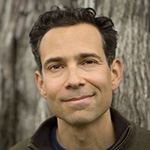

Search Results: listening
-
Among NVC practitioners, empathy can be superficial. How open are you to being influenced by what others are saying? Do you reflect back and then guard and remain within your position of being right, even as you say otherwise? Only when we're eager to be influenced by what they say can we connect, expand our world and thus, shift the field. Without such openness we fool ourselves into thinking we are truly empathic listeners.
-
Learn to translate judgments into self-awareness to improve listening in business.
-
While someone is upset or hurt they may "listen" to us to gather evidence for a rebuttal, to assert or validate a preconceived idea, and so on. When in this "predatory listening" mode, the "listener's" needs overshadow relational values like understanding, connection, or mutuality. In response to this we can consider our purpose, affirm any positive intent or need in what they say, and ask direct, honest questions.
-
Discover the power of listening to open doors and transform people in this talk.
-
Trainer Tip: In our effort to be heard, we often forget to listen. In fact, your need to be heard will not be met completely until you have heard how what you said affects the other person. If we want to ensure that we're heard we can ask the other person to reflect what they heard us say. And we can hear what's going on with them. It is important to remember that a dialogue is not complete until both people have been heard.
-
Lorraine Aguilar perceives NVC-based listening to be an essential skill to cultivate for success in the business world. A key exercise for building your listening muscle is to work with your judgments of others by translating those judgments from “What’s wrong with them?” to “What's important to me?"
-
Often, honoring someone’s choice supports more connection. Thus, checking in with someone’s choice to listen or not (offering autonomy) sets the stage for being heard more fully. On the other hand, when someone has the perception that you are talking to them without considering their choice, resentful listening might result. Here are ways to mindfully check in about choiceful listening before starting a conversation.
-
See how to better connect with children’s needs, especially when they resist or react to requests.
-
What do we do when someone speaks to us in a way that doesn’t feel respectful? In this video, Oren Jay Sofer explores how NVC invites us to listen for the feelings and needs behind harsh or judgmental words — not because we “should,” but because it gives us more choice and freedom in how we respond.
-
Listening is a cornerstone of dialogue and a powerful metaphor for spiritual practice. When we’re willing and able to listen, we open a conduit that allows connection and understanding to happen.
-
-
-
-
Being heard is a core human need. But what if you don't like what the other person is saying: how do you hold onto your awareness of their humanity? Find out in this demonstration from Kathy Simon's course, Connect Across Differences.
-
Oren J. Sofer offers an NVC approach to navigating tough moments—balancing honest self-expression with deep listening. Discover how centering yourself, naming your intentions, and hearing the other person first can create the understanding needed for true connection.
-
Listen to the Universe is a fun group exercise to explore how we focus our attention and interpret what we experience.
-
Physical distancing is opportunity to creatively to meet your needs in new ways. In this containment, with very few cues from others and the environment you now have a rare opportunity with less external distraction to rethink what's truly supportive -- and make significant changes to the less noticable habits of mind, standards and "should's". Applying questions and noticing certain symptoms can support. Read on for more.
-
Listen to CNVC Certified Trainer Dian Killian guide and ease you into a more natural expression of empathy. This is a three person exercise. Listen in and then give it a try!
-
In the third in a series on applying NVC to daily life, Shantigarbha follows directly on from Episode 2, showing us that listening isn't a passive activity, and offers five tips for how to improve our listening skills.
-
Trainer Tip: Sometimes when we look to fix someone's problems we think we're doing it to make them feel better, but in reality we are uncomfortable and we want to feel better. Instead of assuming you know what their problem is or what they need, listen deeply. Your listening presence can bring relief to the both of you and provide additional opportunities for healing. And along the way they may find their own way to a solution.

Quick Links
Subscription Preferences
Stay In Touch!
Looking for ways to keep up with NVC Academy news, get special offers, free resources, or words of inspiration? Here are five ways to stay engaged:
















